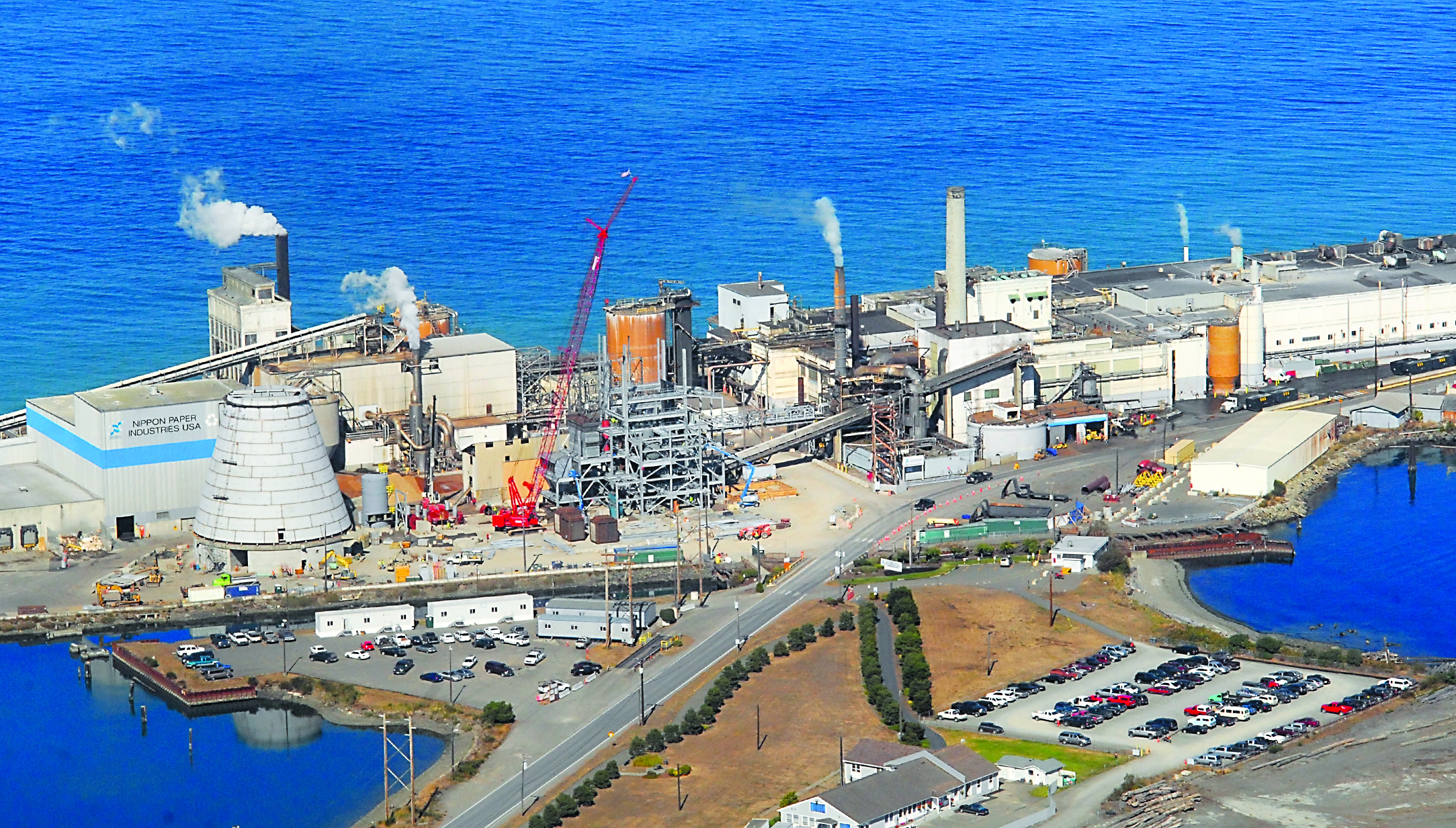PORT ANGELES — New buildings, destined to be among the tallest structures in town, are slowly filling the skyline at Nippon Industries USA’s Ediz Hook mill as part of a $71 million expansion of the company’s biomass cogeneration plant.
A 125-foot exhaust stack was finished Friday, mill Manager Harold Norlund said Saturday.
The overall project now is expected to be completed by Sept. 1, about four months later than planned, he said.
“The permitting was one thing that put us behind, and there were a bit of construction delays that put us behind right at the start of the project,” Norlund said.
“It’s going well now.”
The cogeneration boiler will burn wood waste to create up to 20 watts of electricity.
The expansion also includes a 115-foot, cone-shaped, wood-waste-fuel silo that has reached its maximum height and is almost completed, and a 110-foot boiler that is almost halfway completed and will be finished by early summer.
“These are big buildings,” Norlund said.
Once the structures are completed, workers will install wiring, lights and a fire-suppression system.
“Right now, we think we’ll be online on Sept. 1, 2013,” Norlund said.
The fuel storage building is shaped like an upside-down cone — wider at the bottom than at the top — so that ground-up wood waste that’s deposited from the top for storage does not hang up on the sides of the building, Norlund said.
“There are no dead pockets in the silo,” he said.
“The fuel drops into the top and goes out the bottom.”
The wood waste will be transported by conveyor belt to the nearby boiler, where distributors will fling the waste evenly into the furnace, Norlund said.
The Olympic Region Clean Air Agency is reviewing Nippon’s permit application for an approximately 40-foot cooling tower.
“The only thing left for us is the cooling tower,” Norlund said.
“It’s on the back side of the mill,” he added.
“You won’t even see it from the road.”
The cogeneration project has been opposed by environmental groups, which say the project does not adequately address tiny, toxin-laden ultrafine particulates in the air created by burning woody mass, while Nippon has said the company is following all state and federal pollution laws.
Port Townsend Paper Corp. also is expanding its cogeneration plant in a
$55 million project that will generate up to 24 megawatts and is expected to be online next year.
It, too, has been opposed by environmental groups whose legal appeals, like those against Nippon, have been turned down.
Work has proceeded on both plants while the projects were challenged.
